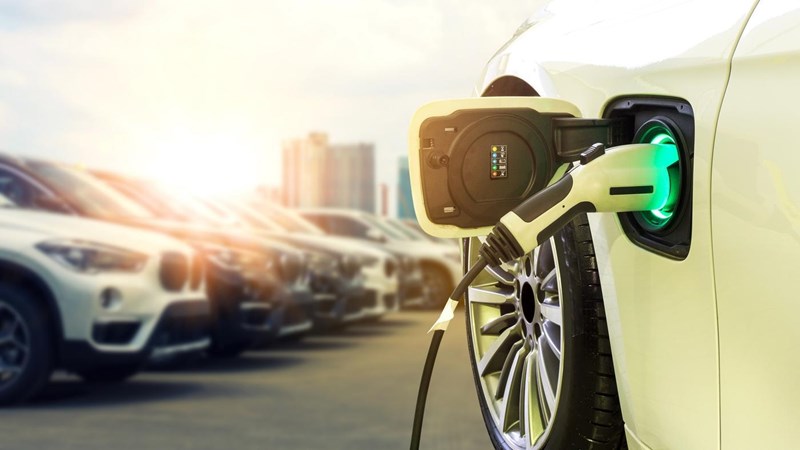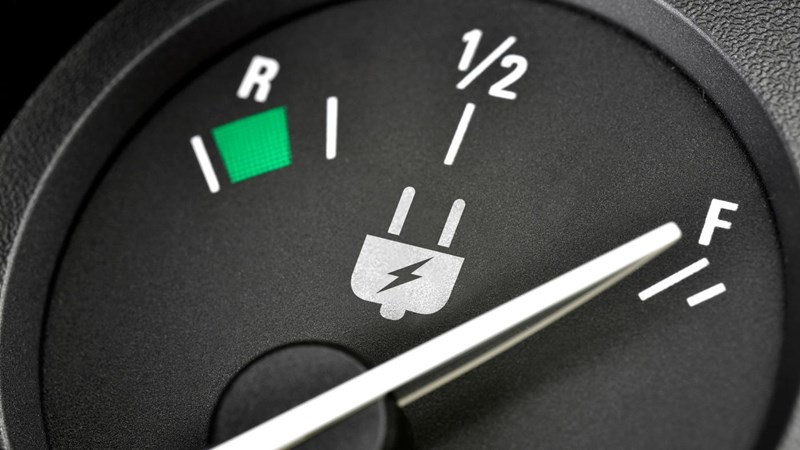Everything you need to know about electric vehicles
Recent electric vehicle sales have surpassed all expectations, moving EVs from niche to disruptor. With technology constantly improving and economies of scale set to kick in as production is ramped up, the road ahead looks good for a transport revolution.
Electric vehicle adoptions finally moving into the fast lane?
Having been a niche option for the last decade, EV adoption is accelerating rapidly. Electric car purchases more than doubled in 2021 to hit 6.5 million, or 9% of worldwide light vehicle sales (China and Europe accounted for 84% of that total, with uptake in other regions more muted). In Europe and North America buyers are mainly affluent early adopters, but in China low-end models have attracted young, first-time car buyers.

How will electric vehicles impact the energy transition?
As electric car and truck sales continue to rise, demand for conventional internal combustion engine (ICE) vehicles will drop away. Given that around 44.5% of global oil production is used to produce gasoline or diesel for road transport, the consequences for the oil industry are obvious. At the same time, electricity demand will increase significantly; for EVs to fulfil their central use case of being better for the environment, that electricity will need to come from renewables. EVs could also create new daily consumption patterns, along with potential strains on electricity grids, and issues around cost allocation and fairness.

What's driving adoption, and what are the barriers to uptake?
For electric vehicles, the primary drivers of uptake are climate policy and decarbonisation goals. These are laudable (and ultimately in everyone’s interest), but less directly compelling than the relative advantages technologies such as smartphones have offered. And while electric cars are potentially cheaper to own than internal combustion engine (ICE) vehicles over a ten-year lifespan, upfront cost is an issue. Range anxiety is also a barrier to uptake. However, vehicle range and charging times are both improving rapidly, while massive scaling up of production volumes should significantly lower costs. Increased public charging infrastructure is likely to allay some fears over vehicle range.

Electric vehicles in numbers
1 million Tesla EVs
were sold globally in 2021
25% of cars sold
in Germany in 2021 were EVs
Zero ICE cars
to be sold in China by 2035
58% of all car sales
globally will be EVs by 2050
Frequently asked questions
Countries representing over 50% of global car sales have expressed intent to be carbon neutral and phase out ICE vehicles, although the deadlines for their ambitions vary. However, as adoption advances, the carrot of government grants is being dropped in favour of the stick. Many of the world’s major cities have restricted zones for high polluting vehicles. Meanwhile, stringent fuel efficiency standards and challenging emissions targets for new cars also aim to drive people towards EVs.
That depends on your point of view. Sales are set for impressive and sustained growth in Europe, APAC and North America, so that we project battery electric vehicles (BEVs) to account for 58% of light vehicle sales globally by 2050. However, we estimate the lack of easily available, low-cost electric vehicles will limit EVs to only 16% of light vehicle sales in the rest of the world by the same date. With average vehicle lifespans around ten years in developed countries (and longer in emerging and frontier markets), It won’t be until 2045 that electric cars surpass total ICE vehicles on the roads globally.
Despite some issues, the outlook is bullish. Supportive policy changes, increased long-term investment from manufacturers, and shifting consumer sentiment all point skywards for EV adoption. We expect electric car sales to double by 2025, then double again to reach 30 million units globally by 2030. However, even with declining ICE vehicle sales, EVs would need to sell at twice that rate to get the world on a 1.5 °C pathway. That would mean sales of 70 million a year by 2030, leading to a global stock of 1.5 billion EVs by 2050.
Read more about electric vehicles
Loading...



